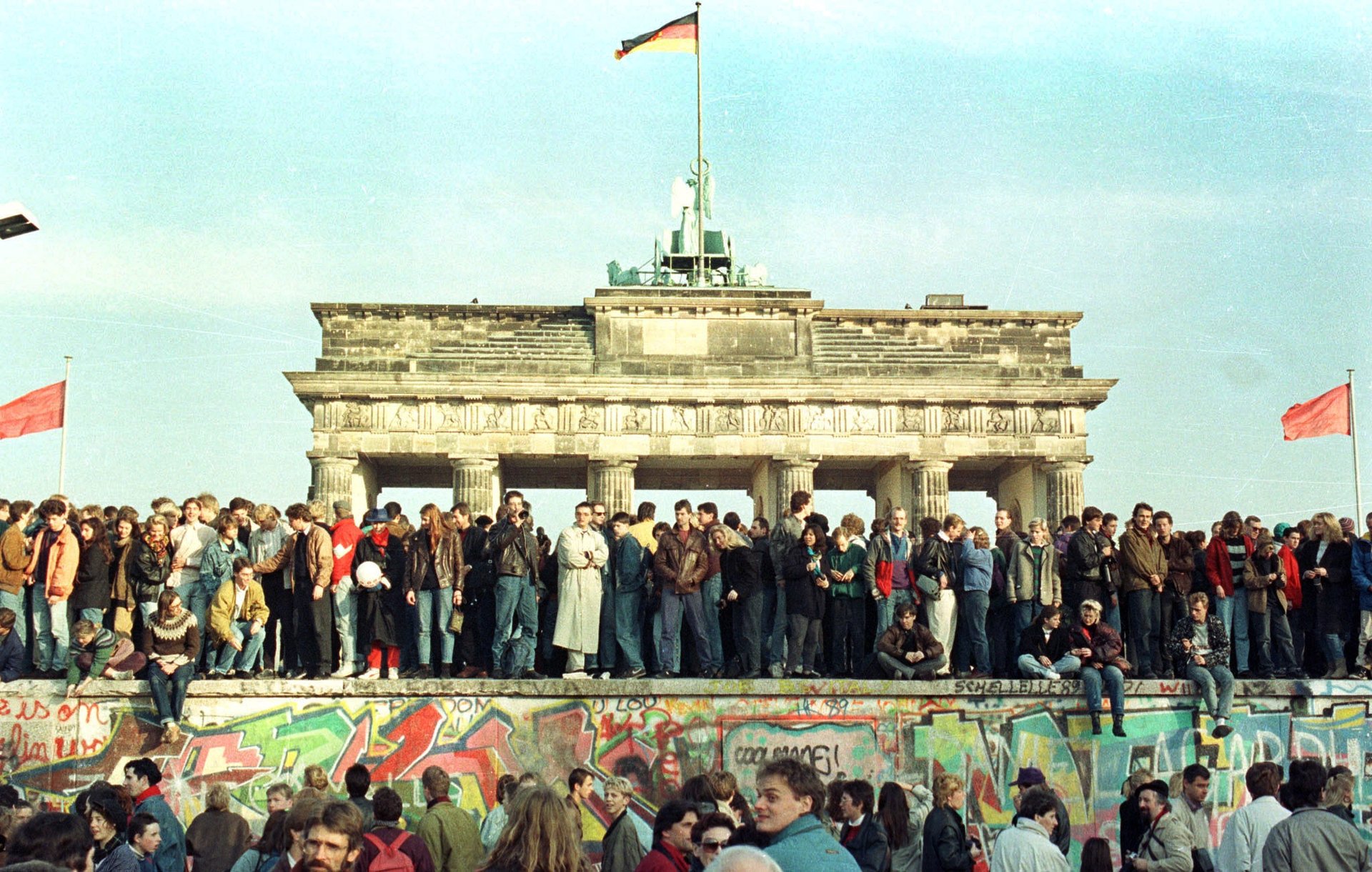In Germany, the day of Trump’s victory is already both an inspiring and a terrifying anniversary
As America woke up to president-elect Donald Trump, who famously and frequently pledged to build a wall across America’s border with Mexico, it’s worth remembering that today is the 27th anniversary of the fall of the Berlin Wall, one of the cruelest borders the world has ever known.


As America woke up to president-elect Donald Trump, who famously and frequently pledged to build a wall across America’s border with Mexico, it’s worth remembering that today is the 27th anniversary of the fall of the Berlin Wall, one of the cruelest borders the world has ever known.
On Nov. 9, 1989, the border between East and West Germany, which divided a nation and split families for more than 28 years, came down. It was the day that Germany began the long, painful process of putting its broken parts back together.
Nov. 9 is also remembered in Germany for darker reasons: it is the 78th anniversary of the “Night of Broken Glass,” or Kristallnacht, when in 1938 the Nazis attacked and destroyed Jewish-owned businesses, homes, and synagogues across Germany and Austria, killing hundreds. The day after that terrible night, more than 30,000 Jewish men were rounded up and sent to concentration camps; and so the Holocaust began.
As Germany celebrated and commemorated these anniversaries, the country’s politicians made veiled and not-so-veiled statements about the consequences of Trump’s populism-fueled victory. Chancellor Angela Merkel congratulated Trump on his win, but was quick to stress that Germany and America would remain close friends only as long as they shared democratic values.
“Germany and America are bound by their values: democracy, freedom, the respect for the law and the dignity of human beings,regardless of their creed, race, sexual orientation, religion, or political attitudes,” Merkel said. “On the basis of these values I offer the future president of the United States, Donald Trump, close cooperation.”
In contrast to Merkel’s diplomatic comments, her vice-chancellor, Sigmar Gabriel, called Trump’s victory a “warning” to Germany, Europe, and beyond, saying that policymakers need to listen more closely to the concerns of their people. He described Trump (link in German) as “the pioneer of a new authoritarian and chauvinist movement,” together with Russian president Vladimir Putin, Turkish president Recep Tayyip Erdogan, and France’s far-right party leader Marine Le Pen.